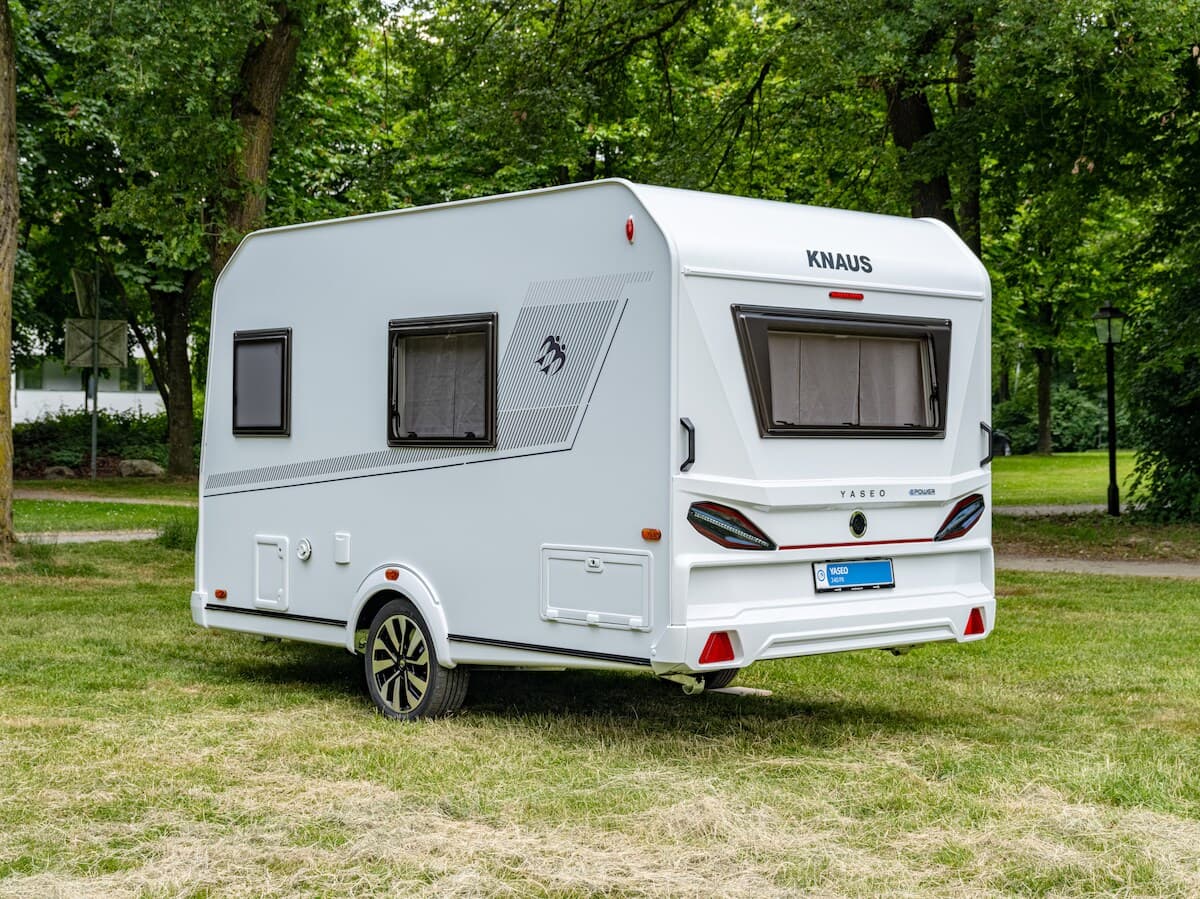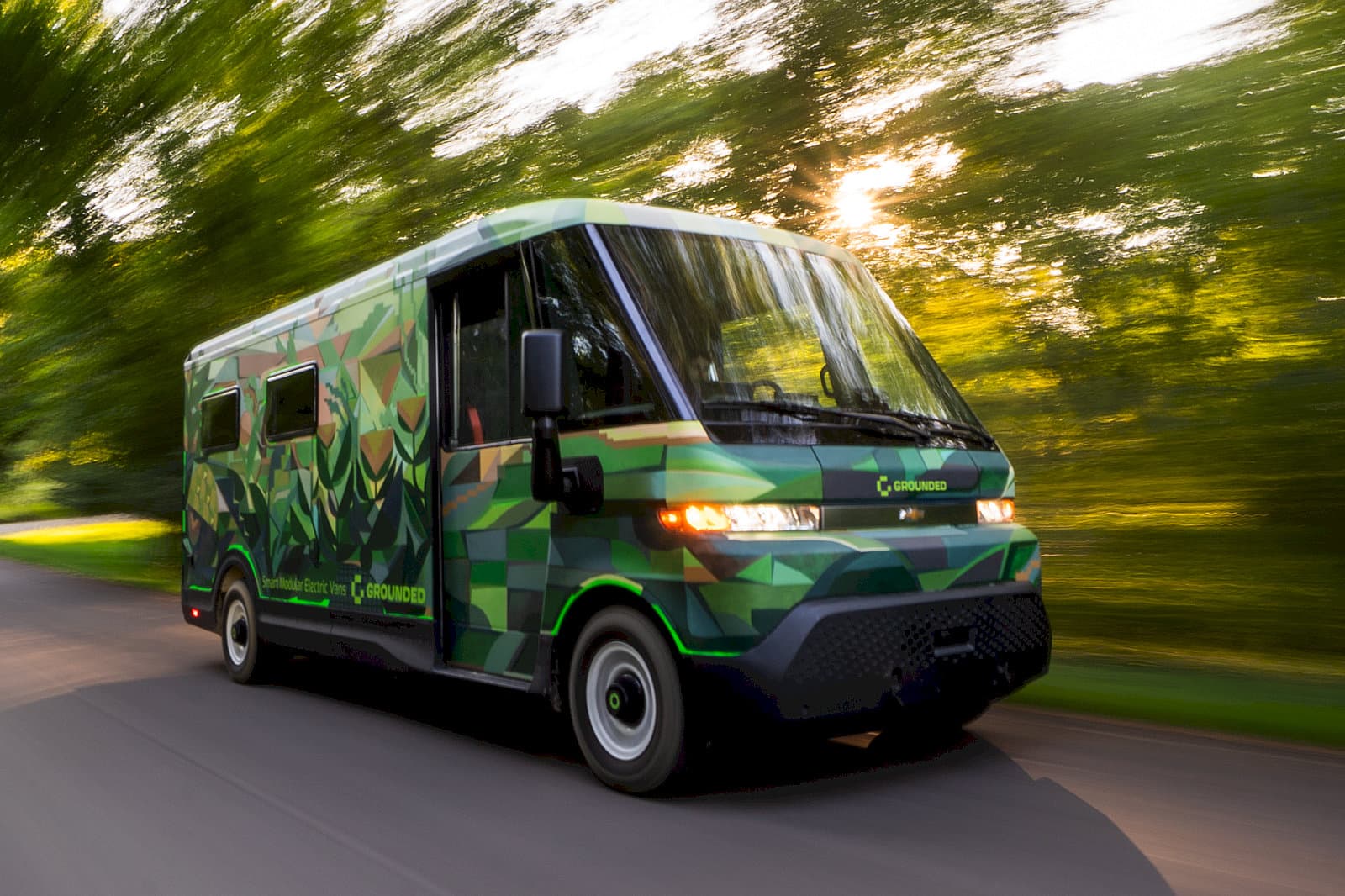Electric camping: the rise of e-campers and ultralight caravans
It's becoming a reality: traveling comfortably to your favorite campsite in an electric car or e-caravan.
Published on July 15, 2025

Our DATA+ expert and Editor-in-Chief, Elcke Vels, explores AI, cyber security, and Dutch innovation. Her "What if..." column imagines bold scenarios beyond the norm.
What once seemed impossible is now becoming reality: traveling comfortably to your favorite campsite in France or Germany with an electric car or e-caravan. With the advent of lightweight caravans, it is finally feasible to tow a caravan with an electric car. What's more, the range of electric campers is increasing thanks to battery innovations.
Last year, almost 11% more new motorhomes (2,467 in total) and 6% more new caravans (7,192 in total) were sold in the Netherlands than in the previous year. While traditional motorhomes and caravans still dominate the market, new models of electric motorhomes and caravans for EVs are also coming onto the market.
Hit the road with your EV and caravan: it's possible!
Do you have an electric car and want to take your caravan on the road? Nowadays, that's possible. Take the Knaus Yaseo: last year's winner of the ANWB Caravan of the Year award. This ultra-lightweight caravan is specially designed for maximum efficiency when used with an electric car. The caravans, which weigh around 1,200 kilograms, are towed by electric vehicles.
Thanks to its streamlined shape and small front surface, the towing vehicle consumes less energy and has a greater range. The caravan is constructed from ultra-lightweight but strong materials. The walls and floor are made of a sandwich construction: a multi-layer structure with an insulating core that is lightweight yet sturdy and well insulated. The roof and underside are made of GRP (glass fiber reinforced plastic), which provides protection against hail and stone chips. The furniture is also lightweight and partly made of aluminum. Dutch companies are also conquering the market for lightweight caravans, such as Easy Caravanning.
Instead of the usual 2.50 meters wide, the newcomer is only 1.85 meters wide. In addition, other materials are used: on the outside it looks like solid wood, but inside there is foam. This results in a significant weight reduction; the caravan is 30 to 40% lighter than traditional models (empty weight: 575 kg).
Electric campers are getting better
In addition to camping with an EV and caravan, you can of course also opt for an electric camper. Models such as the Grounded G3 mark an important step forward in the electrification of campers. The G3 offers an impressive range of 460 kilometers: a significant improvement over previous electric campers, which were often limited to around 200 kilometers.

Credits: Grounded RVs
The rapid development of battery technologies will also make traveling with an electric motorhome increasingly attractive in the coming years. Solid-state batteries, such as those developed by QuantumScape, use a solid ceramic electrolyte instead of a liquid one. This increases energy density and safety. Thanks to this development, the range of electric motorhomes is set to increase significantly.
At the same time, more and more campsites and motorhome sites are investing in charging stations, making electric travel much more attractive. According to recent research, approximately one in five European campsites has one or more charging stations. In the Netherlands, this figure is even higher, at over 36%.
Environmentally friendly and quiet
In short, camping with an electric camper is no longer a dream for the future. Although the price of e-campers and lightweight caravans is (still) higher than that of traditional models, you get a lot in return: your vacation is much more sustainable, you have access to environmental zones, and you can enjoy a wonderful, quiet trip.
